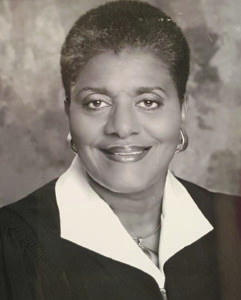A year-long court battle recently came to an end when a Cook County judge denied a prosecutor’s effort to subpoena news organizations in the 22-year-old Roosevelt Myles’ wrongful conviction case.
The ruling ended delays and frustrations for Myles, whose case hit a snag in court when Prosecutor Tom Dombrowski took an entire year trying to subpoena the Discovery channel and Painless Productions, for news material from an aired documentary about the case.
Lawyers for the companies fought the subpoena, arguing the documentary is protected under the First Amendment guaranteeing freedom of the press.

On June 27, Judge Carol Howard ruled in favor of the news outlets, saying Dombrowski had not met the burden to override reporter’s privilege under Illinois or California law.
Judge Howard said Dombrowski, therefore, is not entitled to aired and unaired materials that were used to produce the show “Reasonable Doubt,” an investigative series that concluded that Myles could not have murdered a teenager on Chicago’s West Side in 1992.
The ruling was a setback for the state, which wanted the material for its defense in the post-conviction case.
Born and raised in Chicago, Myles spent 28 years in jail and has waited 22 years for an evidentiary hearing that he was granted in 2000. He went through a string of public defenders before prominent Attorney Jennifer Bonjean took his case in 2017. But even with a private powerhouse attorney, Myles’ case languished in court because of roadblocks from state prosecutors.
An evidentiary hearing is a necessary step for Myles as he seeks exoneration and to have his conviction overturned. The Cook County State’s Attorney’s office has made Myles’ ordeal worse and at one point, had his appeal dismissed before an Appeals Court reinstated it.
Myles was released in 2020 and has struggled to get on with his life as a convicted murderer. But his wrongful conviction case is slowly gaining momentum. After 22 years of waiting, Judge Howard in May granted him an evidentiary hearing that will begin August 29 at the Leighton Criminal Courts building.
In the “Reasonable Doubt” documentary, Myles’ alibi, Michael Hooker, claims he saw Myles leave an apartment building when 16-year-old Shaharian “Tony” Brandon was fatally shot in 1992. Hooker did not testify at Myles’ trial in 1996.
With no DNA evidence and a false confession of the state’s main witness, Octavia Morris, 15-years-old at the time of the murder, Myles was convicted of first-degree murder and attempted robbery.
The “Reasonable Doubt” series argued that Brandon’s murder may have been a planned hit because his killer had been waiting under a stairwell as he and Morris were leaving the house that morning.
In court, Dombrowski wanted aired and unaired material of the documentary, but Myles’ lawyers warned that the news outlets would fight the subpoena, claiming reporter’s privilege. Dombrowski argued that reporter’s privilege doesn’t apply because Myles’ post-conviction case is neither a criminal nor civil matter. But in response to Judge Howard’s questions, Dombrowski failed to cite a case that shows that the use of the Reporter’s Privilege defense can only be used in criminal and civil cases.
During the hearing on May 13, Steven Mandell argued before Judge Howard that Dombrowski hasn’t met the Illinois statute that requires attorneys and prosecutors to exhaust all options in obtaining source material before subpoenaing a news outlet. Mandell also argued that Dombrowski can interview Hooker and the other individuals who were included in the documentary as part of his case.
In response to that offer, Dombrowski said Hooker and the witnesses wouldn’t remember what they said during the aired and unaired recordings of their interview. Dombrowski also said the witnesses would have credibility issues and having the actual unaired material would address that concern.
Trying to get around the reporter’s privilege issue, Judge Howard proposed obtaining unaired material from “Reasonable Doubt” while Dombrowski interviewed witnesses from the documentary. During depositions, Dombrowski would interview witnesses while Judge Howard checked their statements against the unaired material from “Reasonable Doubt.”
Dombrowski objected to that idea, saying under an Illinois statute, the obligation to view obtained material is placed upon the state. “Nothing in there says that the court can review and make a determination as to whether or not this is exculpatory,” Dombrowski argued.
Mandell also objected to the idea, but Judge Howard’s June 27 ruling was a victory for his client.






